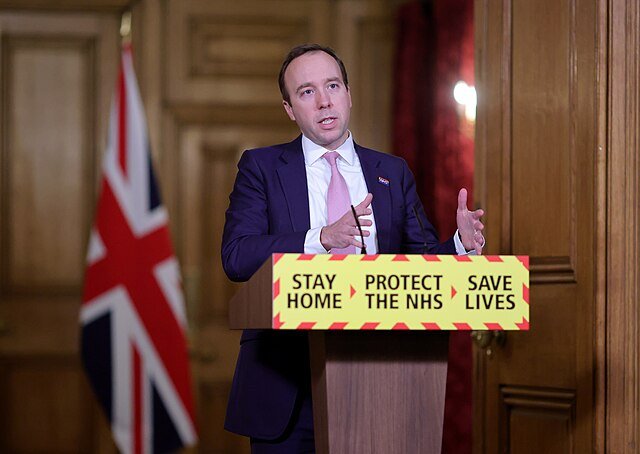Former Health Secretary and Failed King of the Jungle: Do Politicians Belong on Reality TV?
Photo courtesy of No 10 Downing Street
Gone are the days of Britain’s stiff upper lip. The last decade has seen massive shifts in Britain’s political culture. For instance, the arguable rise of populism following the 2016 Brexit Referendum which has exacerbated pre-existing societal tensions around topics like immigration and diversity. Another, perhaps more unexpected shift is the recent uptick of politicians joining the likes of Peter Andre and the Kardashians by becoming mainstays on reality TV.
When Matt Hancock signed the contracts for ‘I’m A Celebrity’ and ‘SAS’, he also signed away his credibility as a serious politician. This resulted in him being expelled from the Conservative Party and vowing to relinquish his Suffolk constituency at the next election. Therefore, this decision is one that many of us are struggling to reconcile. In Hancock’s own words, the motivation for doing reality TV was to “deliver important messages to the masses”. But how much far can we take this reasoning at face-value? I for one, question the extent to which Hancock, and similar politicians, are truly driven by a moral duty to educate ‘the people’. It seems more likely that politicians are viewing reality-TV ventures as ‘quick money’- especially since they can be paid upwards of £25,000 and in the case of Hancock, paychecks can even range well into six-figures. Perhaps, there is also something to be said for the prospect of stardom as a key factor in politicians’ decision to star on reality shows. It may be that these ‘underdog’ politicians are using reality TV as a rebranding mechanism to overwrite their poor political legacies- with Hancock seemingly looking to forge a career for himself after his mistakes as Health Secretary cost millions their lives during COVID.
Reality TV’s popularity stems from its coverage of “ ordinary people who are filmed in real situations” . Reality shows foster a very entertaining and enjoyable viewing experience due to the familiarity these programmes are able to create. By appearing on a platform as popular as reality TV, these politicians can more easily present themselves as representatives of the masses- public heroes if you will. Maybe this is the root of the conflict: politicians trying to be relatable, ordinary people. Guardian journalist John Kampfner argues that politicians need to be “serious people”, a sentiment many of us will be inclined to agree with. As leaders and powerful decision makers, we expect our political figures to be responsible, dignified, and grounded. These are attributes most wouldn’t associate with the element of ‘relatable’ calamity underpinning most reality shows. But perhaps this is too cynical an assessment. Maybe, the real issue is that people are holding politicians to standards based on outdated notions of respectability. After all, people do want to see themselves reflected in their politicians, people do want to see their humanity.
But being human doesn’t have to mean humiliating oneself. Nor does it justify or minimise the misdemeanours of problematic politicians like Hancock and Dorries. This phenomenon of reality-star politicians has serious implications for the state of our domestic politics and our international reputation. With our MPs impersonating cats, and our cabinet ministers eating cockroaches in exchange for canned laughter, what chance does Britain stand in presenting itself as a world leader in any meaningful sense? How can the British electorate rest assured that the country is in good hands while key members of the government degrade themselves on national television with little regard for how their actions reflect on themselves, their political parties, and the integrity of British politics? Ultimately, competence must outweigh the desire for “relatability” if Britain is to maintain a sophisticated political system that is respected and appreciated both nationally and internationally.

